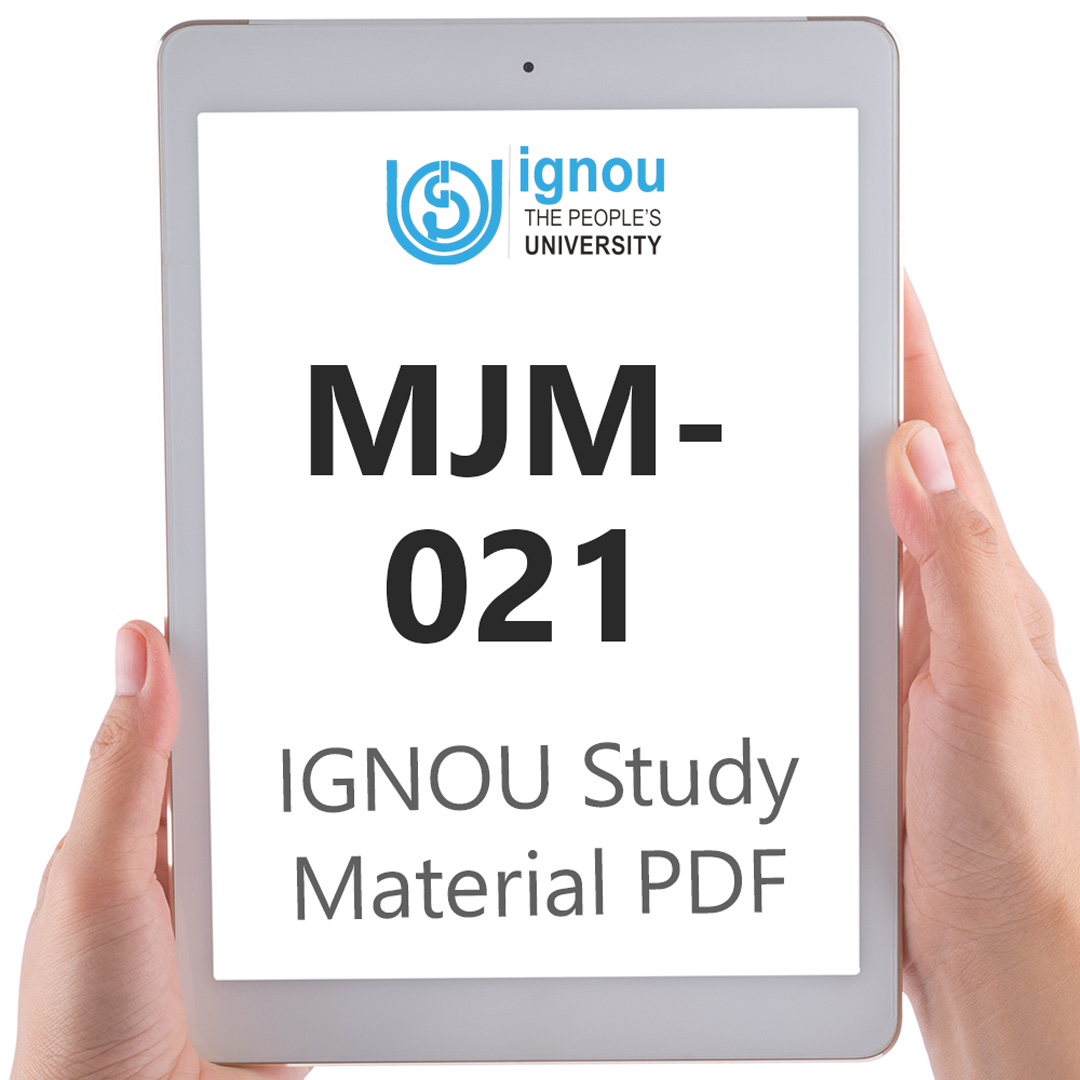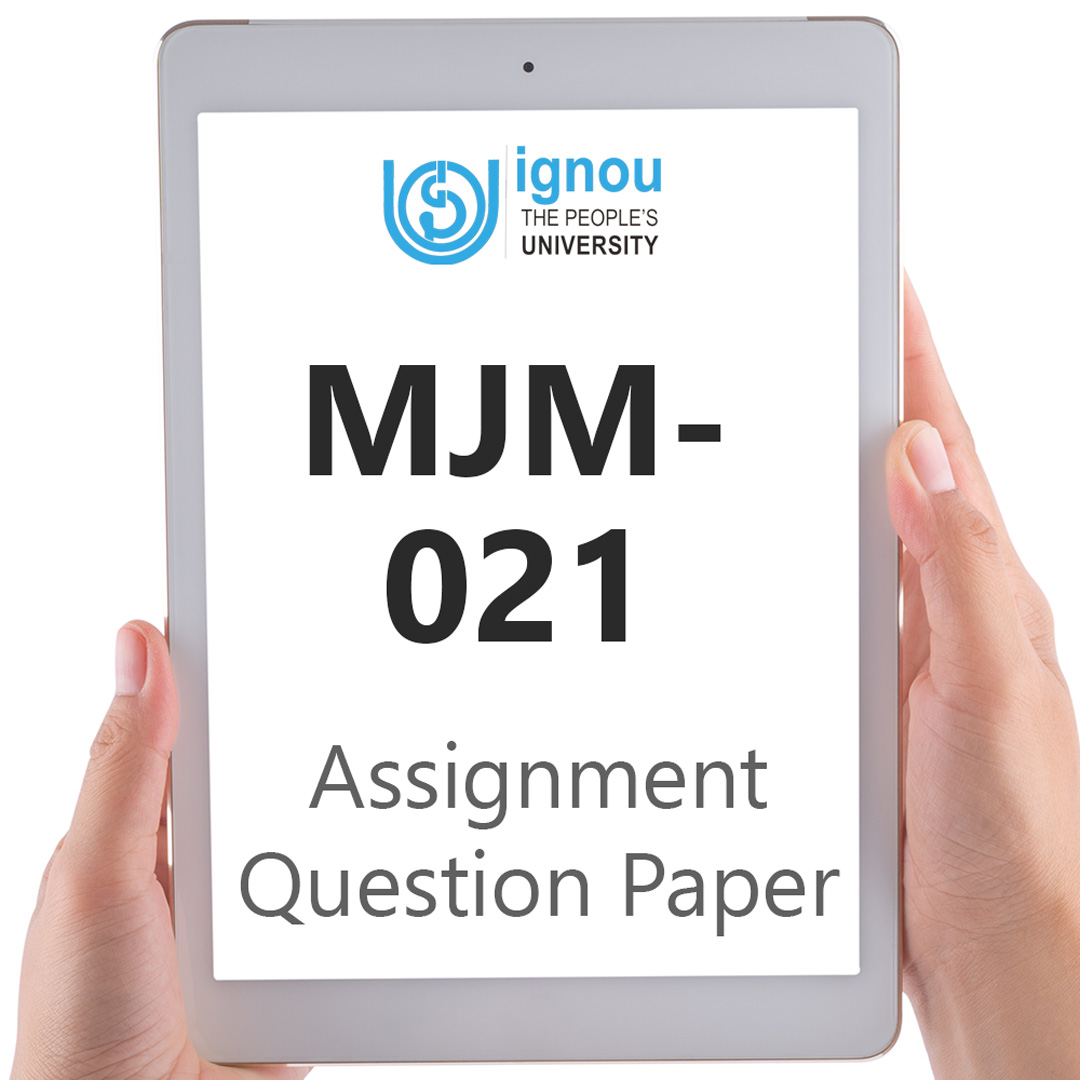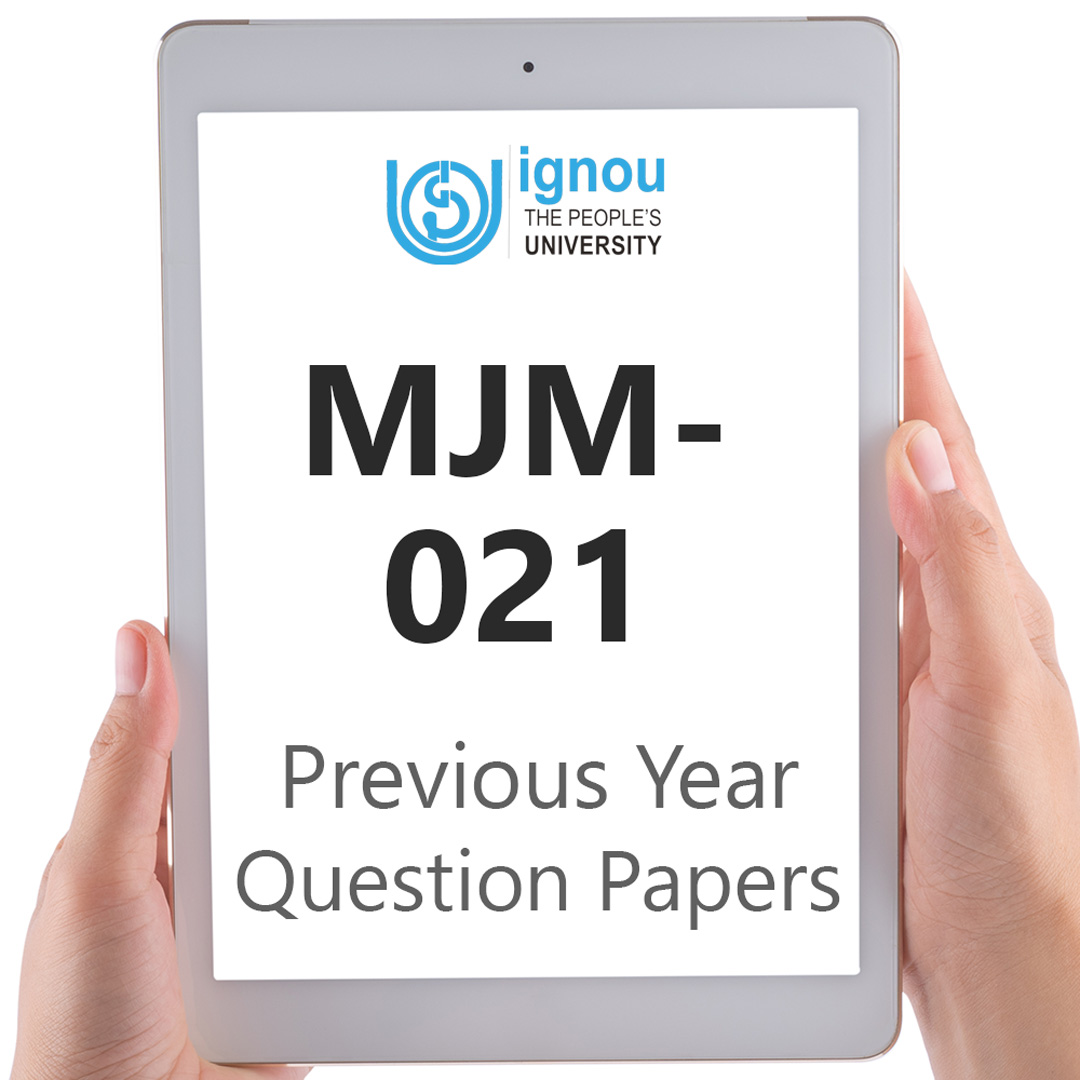If you are looking for MJM-021 IGNOU Solved Assignment solution for the subject Reporting Techniques, you have come to the right place. MJM-021 solution on this page applies to 2022-23 session students studying in MAJMC, PGJMC, MAJDM, MAJEM courses of IGNOU.
MJM-021 Solved Assignment Solution by Gyaniversity
Assignment Code: MJM-021 / July 2022 / January 2023
Course Code: MJM-021
Assignment Name: Reporting Techniques
Year: 2022 - 2023
Verification Status: Verified by Professor
Note: Answer all the questions. All questions carry equal marks = 20 each
Attempt each question in about 500 words
Q 1. Write a feature for your local newspaper on the rise of pollution levels in cities during festivals and weddings and sustainable ways of celebrations (500 words).
Ans) Through the pages of the Mid-Day newspaper, I hope to draw the attention of city officials to the problem of rising noise levels and their negative consequences.
Our ever-expanding city was already suffering from air and water pollution, but people have only recently begun to adopt the trend of celebrating their extravaganza with the loudest noise that is possibly possible. The days when tourists would come to the city to enjoy the peace and quiet and find solace in the embrace of our peaceful temples and mosques are long gone. Those days will never come back. Today, every single neighbourhood is equipped with loudspeaker that broadcasts a message into the surrounding air.
Everyone in the vicinity, whether they are directly involved or not, is subjected to discordant music when wedding processions and DJs play their music, which interferes with people's ability to sleep and their ability to concentrate on their schoolwork. The city has already been struggling with uncontrollable levels of air and water pollution; now it must also contend with rising levels of noise pollution as well. It is wreaking havoc on people's health and fitness, especially the health of the elderly and those who are already ill. It is very annoying, and there is no calm anywhere in the area.
Noise-producing factories, construction work, and other industrial activities are already present to spread noise. Diwali is one such festival that contributes significantly to air pollution. It is customary to burn and light crackers on Diwali. It's a lot of fun and enjoyment to burn crackers, but few people realise that crackers are extremely harmful to the environment. Furthermore, the general public contributes to pollution. We enjoy playing songs over loud noises at any event. Whether it's a wedding, a birthday, or a major festival like Ganesh Chaturthi, Dussehra, or Janmashtami. The volume of music played at festivals is extremely damaging to the ears. It especially bothers so many students who are studying for exams.
We should try to celebrate festivals as peacefully as possible. It should not cause any distress or harm to anyone. Wedding procession with sound-producing firecrackers, wedding reception with loud music from the neighbourhood, all of these contribute to pollution and are completely unnecessary. Noise control laws are broken without regard for fear or morality. People will develop hearing problems if this is not addressed. Even students, who are at a critical juncture in their lives, are irritated because the noise interferes with their ability to concentrate.
If this threat is not addressed soon, our city will suffer in the tourism and public health sectors. A plan should be put in place to ensure that marriages take place on the outskirts of the city. The police should be more responsible and investigate any complaint about noisy neighbours that comes in. I hope that after reading an article about the city's noise pollution in your newspaper, the relevant authorities awaken and take appropriate action.
It is a humble request that the relevant authorities pay attention to such issues and take appropriate action.
Q 2. Write an article on the concerns of the government regarding the use of crypto currency in the country. (500 words)
Ans) Since it was first mentioned in a 2008 whitepaper, Bitcoin (BTCUSD) has caused debate and made headlines. The launch of the cryptocurrency is heralded by its supporters as the beginning of a brand-new, fair monetary system. Critics claim that cryptocurrencies are "rat poison squared" due to their use in illegal activities and lack of legal recognition. Although there is no regulation of cryptocurrencies in India, the government announced in Budget 2022 that gains from cryptocurrency transactions will be subject to a flat tax of 30% and a tax deducted source (TDS) of 1%.
Concerns of Government regarding Crypto Currency
Governments also want to regulate cryptocurrencies because they make it very easy to evade taxes and commit crimes because they don't require the clearing institutions of the established financial system to function.
By avoiding capital controls put in place by the government, Bitcoin gives a nation's citizens the ability to challenge that authority. By assisting criminals in avoiding capture, it also promotes evil deeds. Finally, Bitcoin has the potential to disrupt and destabilise the current financial infrastructure system by eliminating intermediaries.
Government regulations to date have placed limitations on cryptocurrency exchanges, mining, and use as a payment method. The intention is to deter users from buying cryptocurrencies in their country.
The potential for Bitcoin to upset the world economy is enormous. However, it faces many difficulties, such as a potential rift in the community over how to increase its scalability.
Scalability is the most important and urgent problem that Bitcoin is currently facing. Due to the limited number of transactions the Bitcoin network can process each second, transaction times are currently slow, and fees are rising.
Why Are Governments Wary of Bitcoin?
Whether the state- and regulation-free future that proponents of Bitcoin envision actually materialises is still up for debate. Governments are currently attempting to comprehend how cryptocurrencies may affect their economies in the near future. They are specifically struggling with the three issues that Bitcoin's present state presents.
1. Bitcoin can circumvent government-imposed capital controls
Governments frequently enact capital controls to prevent currency outflows because exports may cause the currency's value to decline. Some see this as yet another way that governments manipulate economic and fiscal policy. The fact that bitcoin is a stateless currency can be useful in these situations to get around capital controls and export money.
2. Bitcoin ties to illegal activity
For criminals, the ability to get around a nation's current financial system is a blessing in disguise because it allows them to hide their involvement in such activities. Users on the Bitcoin network can only be recognised by their network addresses because it is a pseudonymous network. It can be challenging to determine the origin of a transaction or the person or business behind the address. Additionally, the algorithmic trust created by the Bitcoin network eliminates the requirement for trustworthy contacts at either end of an illicit transaction.
3. Bitcoin is not regulated
Despite the fact that Bitcoin was introduced more than ten years ago, governments all over the world are still attempting to regulate it. The issue with bitcoin regulation is complicated. For instance, shifting perceptions of Bitcoin's usefulness have complicated issues relating to the best government agency to oversee the cryptocurrency, definitions to be used when creating laws, and even the methodology for creating laws.
Q 3. On the basis of your reading of the unit ‘Research for Journalistic Writing’, use the various methods and tools of journalistic research to write an article on the rise of start-up ecosystem in the country. (500 words)
Ans) Research topic on the Rise of Start-up Ecosystem in India:
Vox-Pop Survey (Voice of People)
Goyal asserts that India has one of the best start-up ecosystems with a unique "jugalbandi," or blending of investors and entrepreneurs, to produce a balanced result and find a win-win solution for all. According to a formal statement, he stated: "Today we are the third largest startup ecosystem, but our aspiration is to be the world's number one startup destination."
"In India, the startup bug has captured people's attention. India is receiving new energy and direction from the entire innovation ecosystem that the startup sector represents "According to the statement from the Commerce and Industry Ministry, he said.
The Minister added that startups must try new things, fail, and gain knowledge from their mistakes. To go above and beyond, he added, "I would urge all of you from the startup world to take the startup storey to all the remote places, villages, small towns, northeastern India, and other regions."
Regarding the government's role in fostering startups, he stated that India strives to offer the best business ecosystem and a level playing field.
Survey
The Economic Survey 2022, which was presented to the Lok Sabha on Monday (January 31) by Finance Minister Nirmala Sitharaman, forecasts that the Gross Domestic Product (GDP) will grow by 8 to 8.5% in FY23 (April 2022 to March 2023). The GDP growth for the currently-running fiscal year 2021–2022 (FY22) has been estimated at 9.2%. The Survey describes the state of the various economic sectors and the reforms that need to be implemented to spur growth. This time, there are numerous references to the startup ecosystem in India.
Unicorns and IPOs
According to the survey, India surpassed the UK to become the third-highest country in terms of unicorn population, behind the US and China, which both saw increases of 487 and 301 unicorns in 2021, respectively. "Over the past six years, startups have dramatically increased in India. From only 733 in 2016–17, the number of newly recognised startups has increased to over 14,000 in 2021–22. After the US and China, India now has the third-largest startup ecosystem globally. Additionally, a record-breaking 44 Indian startups reached unicorn status in 2021, bringing the total number of unicorns in India to 83. The majority of these companies are in the services industry "based on the survey,
Digital Tool used for Startup
As of now, India is the fastest growing economy with the third-largest startup ecosystem in the world China and the U.S. After COVID-19, the ecosystem grew rapidly. In 2020, India added 11 unicorns to its ecosystem; in 2021, it added 42 unicorns worth $90 billion. The Indian startup ecosystem has expanded rapidly due to fast adoption of digital technologies, development of the deep tech sector, and increased investor commitment and government support under Startup India. This research paper examines how India became the third-largest startup ecosystem in the world, how pandemic affected the ecosystem, and the main growth drivers and challenges Indian startups face today. The paper analyses the startup ecosystem and its factors.





